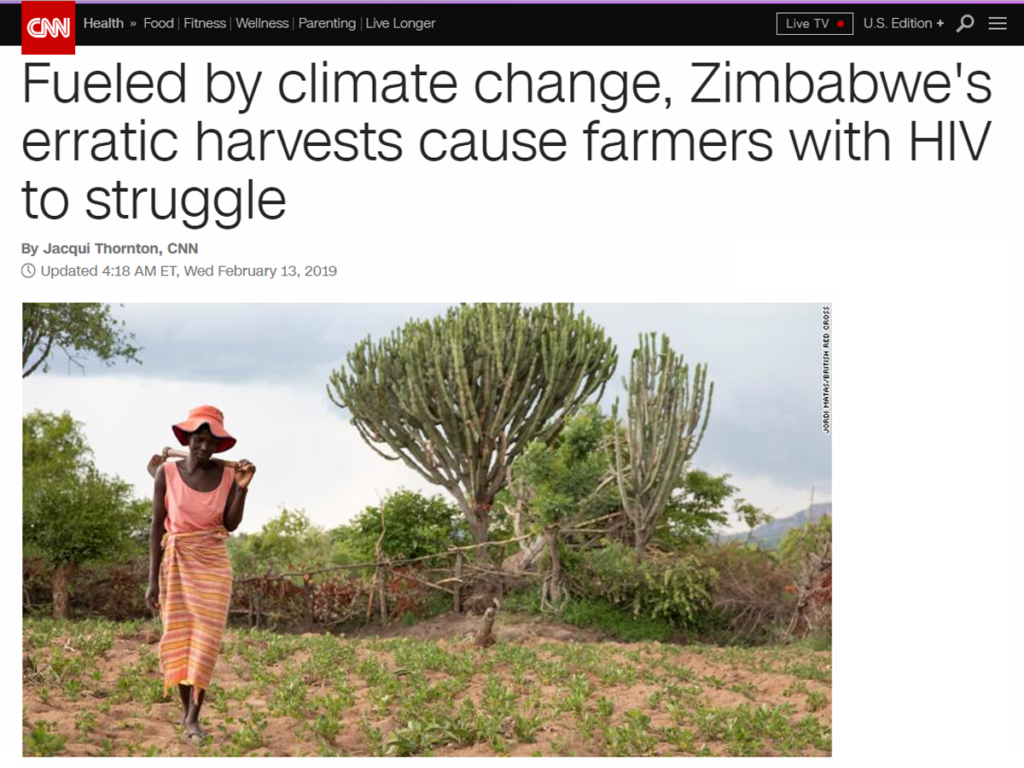 Drought and resulting issues around food security were also shown in a recent study to affect rates of new HIV infections. The research by Columbia University, the Lesotho Ministry of Health and the US Centers for Disease Control and Prevention found that adolescent girls exposed to severe drought conditions in rural Lesotho had higher rates of HIV. They were also more likely to engage in high-risk behaviors, including sex work, and were more likely to drop out of school.
Drought and resulting issues around food security were also shown in a recent study to affect rates of new HIV infections. The research by Columbia University, the Lesotho Ministry of Health and the US Centers for Disease Control and Prevention found that adolescent girls exposed to severe drought conditions in rural Lesotho had higher rates of HIV. They were also more likely to engage in high-risk behaviors, including sex work, and were more likely to drop out of school.
“Climate extremes are often associated with changes in behavior as people struggle to survive in the face of loss of agricultural production.,” wrote lead author Andrea Low, assistant professor of epidemiology at the Mailman School of Public Health at Columbia University. “As people, particularly women, address their food insecurity, they may be less likely to take steps to protect themselves from HIV infection.”
Read the full article on CNN.com
Read the original publication on PLoS Med






